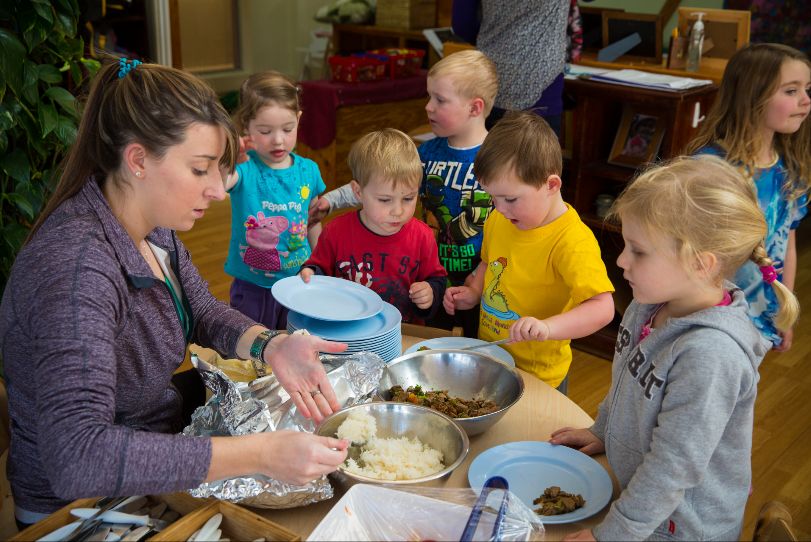
Prior to working as a Speech Pathologist and Feeding Therapist, I spent ten years working as an Early Childhood Educator in child care and as a Preschool Teacher. In these settings, food was provided, cooked by an in-house cook and shared by children at mealtimes.
Over the years, I met many children who found mealtimes really challenging.
Some children couldn’t walk past the kitchen without pinching their nose and others would demonstrate challenging behaviour when they knew the mealtime was approaching. At this point in my career I was often confused about how to approach their mealtime challenges – did I give some children a separate meal? Did I allow them to go off and play rather than join the group for lunch? Or for those children who really struggled to get to the table at shared mealtimes, I wondered, how could I make them feel more relaxed and ultimately join in with the social experience of shared mealtimes? Often parents would feel stressed about bringing their fussy eaters into these settings, also unsure of how to best support their children in these situations. Some families also reported that their children would eat more at Preschool, wondering why their child wouldn’t eat that exact meal when prepared at home.
It was here that my interest in Feeding Therapy and journey into Speech Pathology began. I have since reflected back on the mealtime practices I engaged in as an early childhood educator, and the ways we were able to support children’s development and learning around mealtimes.
Children were given opportunities to help with cooking and food preparation. Cooking experiences were often enjoyed by all children, without the pressure of having to try the food being prepared. This also gave the children an opportunity to get messy, talk about the changes they were observing in the food and feel a sense of accomplishment with the end product.
Children were involved in setting the table for mealtimes as well as cleaning up at the end of the meal. Shared mealtimes can be daunting for some children, so by allowing them to be involved in the process, they are able to feel a sense of ownership and control over the experience.
Educators recognised the importance of sitting with the children and modelling touching, smelling and tasting of food as well as encouraging children to engage in conversation with their peers. Through these conversations, children learned turn-taking social behaviours, because of course, mealtimes are a wonderful social experience!
Early Education settings can support all children’s development by providing a variety of nutritious foods and giving children the opportunity to decide what and how much to eat from the selection made available. Including a variety of food types and textures will also support children’s sensory development.
Ultimately, the goal in Early Childhood settings should be to create a positive mealtime environment. A happy, relaxed mealtime will reduce stress levels and support children’s confidence to try new food!
Hannah Caon
Speech Pathologist / Feeding Therapist
Lively Eaters Feeding Services




